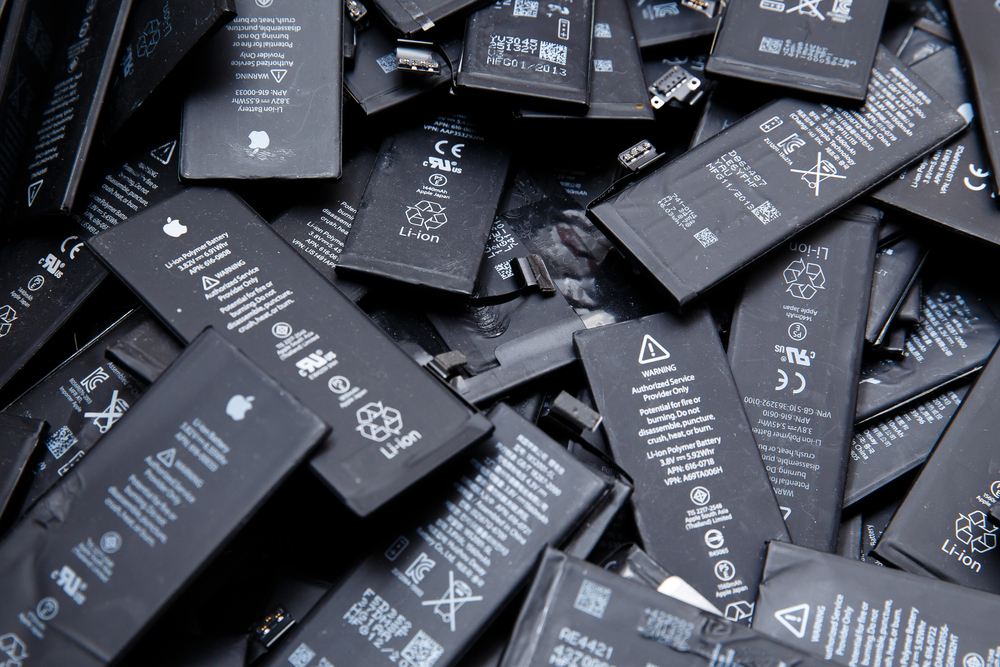By Jean-Jacques DeLisle, contributing writer
Batteries are a huge part of life in the modern world. There’s no doubt about it — every one of us relies on them on a daily basis, from our cars to our cellphones and everything in between. Considering how important batteries are in our lives, it’s surprising that most of us are unaware of how to properly store and care for them. That being said, we’ve put together a short list of tips and tricks to help you get the most out of your batteries.

Image source: Shutterstock.
Never freeze your batteries
It’s a common myth that putting your batteries in the freezer can make them last longer, and many of us can remember tossing a few dead AAs in the freezer to get a few more minutes of play from our Gameboys. This is, however, just a myth, and is actually somewhat dangerous. The change in temperature can be harmful to many batteries, causing the liquids within to expand or contract and damage the seals to the batteries, which could cause leaks of harmful substances.
Recognize the differences in batteries and their different uses
The two main types of batteries are lithium and alkaline, and knowing the difference between them could help you get the most out of your batteries. Lithium batteries are meant to be recharged and are found in cellphones and other devices. These batteries are high-performance and are designed to handle multiple charges and release energy slowly. Rechargeable lithium AA and AAA batteries can also be purchased and are an environmentally friendly option.
Alkaline batteries are the most commonly bought batteries and are the type that you might have in your TV remote. They’re cheaper and more economical, but they cannot be recharged and are, therefore, better-suited for jobs with low power demands or for devices that are only occasionally used.
Store your batteries appropriately
Battery storage is important if you want to get the maximum life out of your batteries. Many businesses lose out on much of the potential life of their batteries due to improper storage. Keeping batteries in their original packaging is a good way to keep them clean and away from other metal objects, which could potentially cause them to discharge some of their stored energy. It’s best to store batteries at room temperature and away from heat because temperature fluctuations can reduce the performance of some batteries and can create harmful leaks. If stored at room temperature, cylindrical alkaline batteries have a shelf life of approximately five years. Cylinder carbon batteries last about two years. Lithium cylinder types can be stored between 10 and 15 years.
Clean your batteries
Corrosion and dirt on a battery terminal can greatly reduce its ability to transfer energy, making them much less efficient. To clean a battery, use rubbing alcohol and a cotton swab, and let the battery dry completely before use. Keeping your batteries clean can greatly increase their lifespan, letting you get the most bang for your buck.
Recycle old batteries
Old batteries should not be disposed of in the garbage because they contain many harmful chemicals and should, instead, be recycled. Many recycling centers accept batteries and may even pay you for larger ones. It’s important to keep batteries out of the environment, and recycling is a great way to do that. The website Earth911 can provide you with a list of recycling centers near you.
Test your batteries
Installing a battery only to find out that it’s dead is both frustrating and a waste of time. To avoid this, new batteries should be tested prior to installation. In order to test a battery, you’ll need a tester, and fortunately, most battery testers are inexpensive and can be purchased at any hardware store. By making sure that your batteries are in proper working order before you install them, you’ll not only save yourself time but also some money.
Do you have any battery tips? Leave a comment below.
Advertisement
Learn more about Electronic Products Magazine





